Lost René Magritte mystery 'jigsaw puzzle' piece uncovered in Norwich
- Published
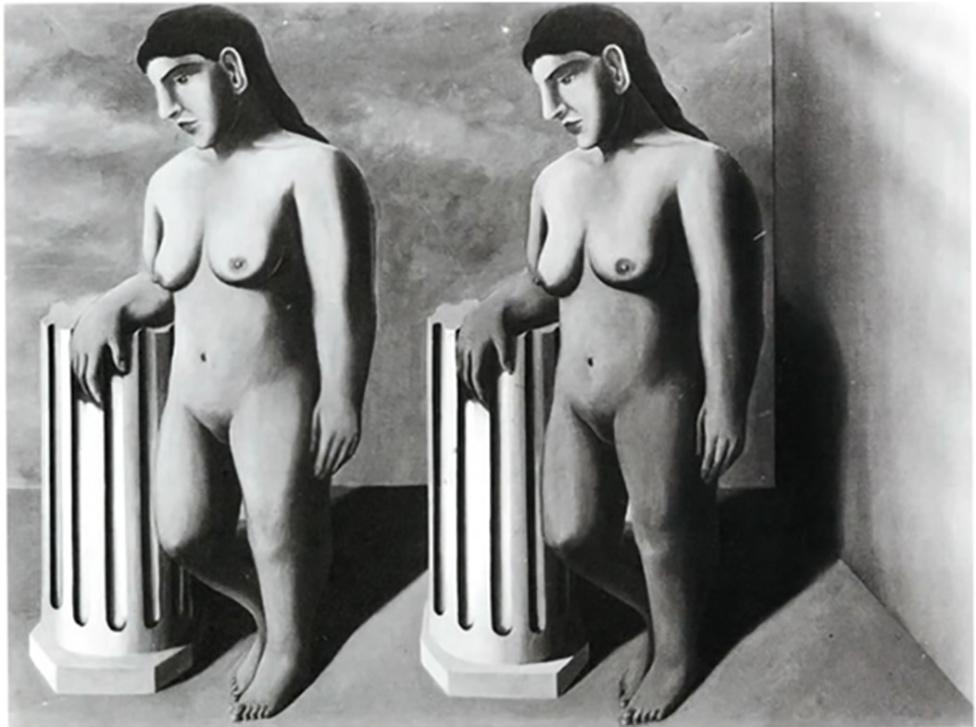
The existence of René Magritte's La Pose Enchantée was only known about because of a single black and white photo
An "art world jigsaw puzzle" involving one of the 20th Century's best-known painters is close to completion after a discovery in Norwich.
Experts have uncovered a third quarter of a missing René Magritte painting concealed under another of his works in the Norwich Castle Museum collection.
Sections of La Pose Enchantée have also been found in New York and Stockholm.
Museum curator Dr Giorgia Bottinelli said the third quarter had been "hiding for more than 80 years".
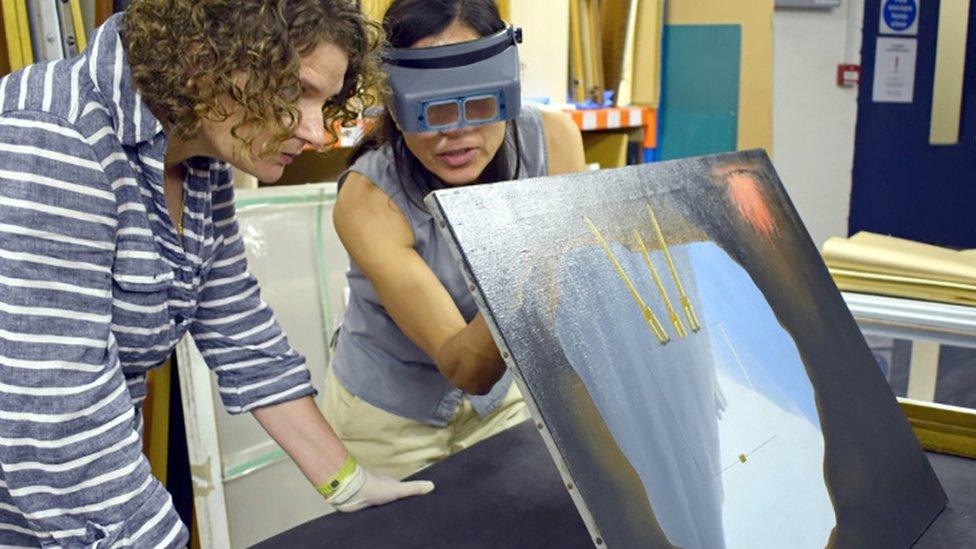
Norwich Castle historic art curator Giorgia Bottinelli (left) with conservator Alice Tavares da Silva who found the painted edges
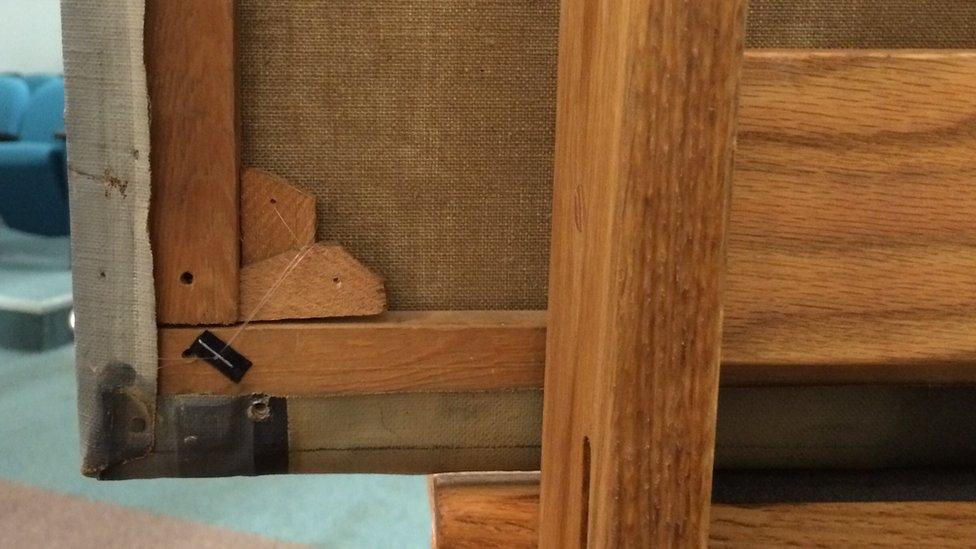
The exposed paint on the back of the canvas raised the conservator's suspicions that the piece could be harbouring another painting
In what has been declared a "hugely exciting discovery", it has now been revealed Magritte painted La Condition Humaine over the lower right-hand section of the missing work in 1935.
La Pose Enchantée was exhibited in 1927 but was later returned to Magritte before vanishing about five years later. The Belgian surrealist, who died in 1967, never mentioned its fate.
"What happened to the missing painting is now slowly coming to light in a remarkable series of events," said Dr Bottinelli, the museum's curator of historic art.
"It seems that for some reason, Magritte must have decided to cut the painting into quarters, and then painted four completely different paintings over the top."

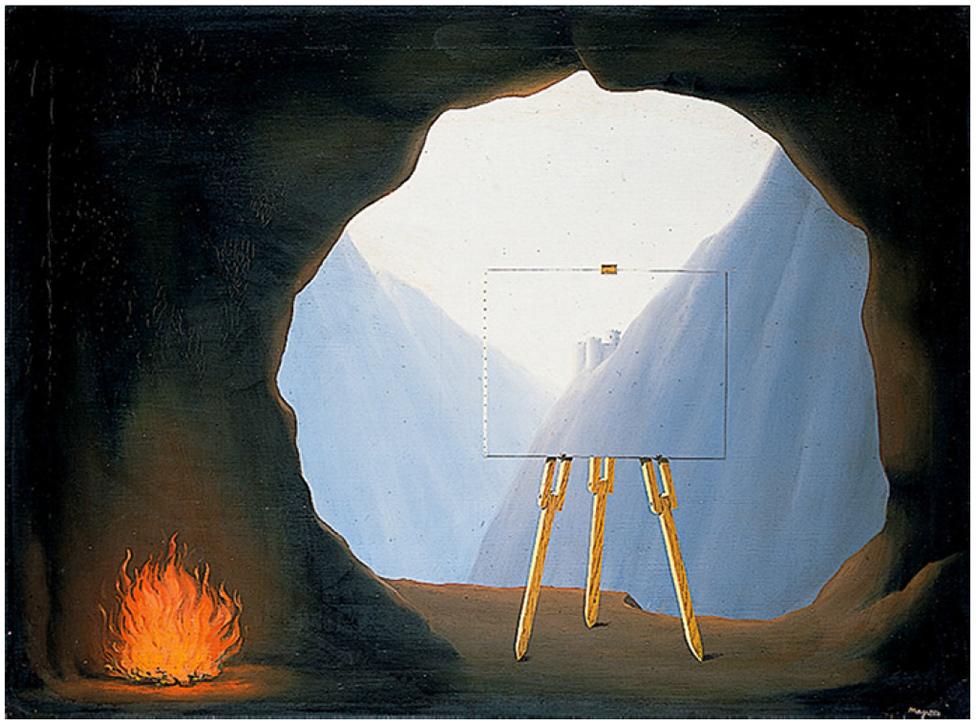
Rene Magritte painted La Condition Humaine over the top of La Pose Enchantée after it was returned to him from an exhibition
Rene Magritte (1898-1967)
Rene Magritte was born in Lessines, Belgium
He started off as a commercial artist before becoming famous for his surrealist work
His paintings have inspired pop and conceptual art, the cover of a Rolling Stones record, a video by Oasis, and a song by Paul Simon
Magritte wore a trademark bowler hat and lived in a Brussels suburb
He did not have a studio but painted in his lounge
A Magritte sold for $11.5m (about £8.6m) in New York in 2002
A museum dedicated to his work opened in Brussels in 2009

Art conservator Alice Tavares da Silva was preparing La Condition Humaine for a major Magritte retrospective in Paris later this month when she discovered the edges and reverse of the canvas had some exposed paint.
She noted it as unusual, then found experts at New York's Museum of Modern Art (MoMA) had discovered the first piece in 2013 underneath a painting called The Portrait, also from 1935, after it was analysed.
The Red Model, painted the same year, in Stockholm's Moderna Museet was also found to be masking a part.
The Hamilton-Kerr Institute at Cambridge University used an X-ray fluorescence technique to confirm Ms Tavares da Silva's hunch.
La Pose Enchantée's existence was only known because of a single black and white photo, but the Norwich discovery will add to MoMA's existing colour reconstruction.
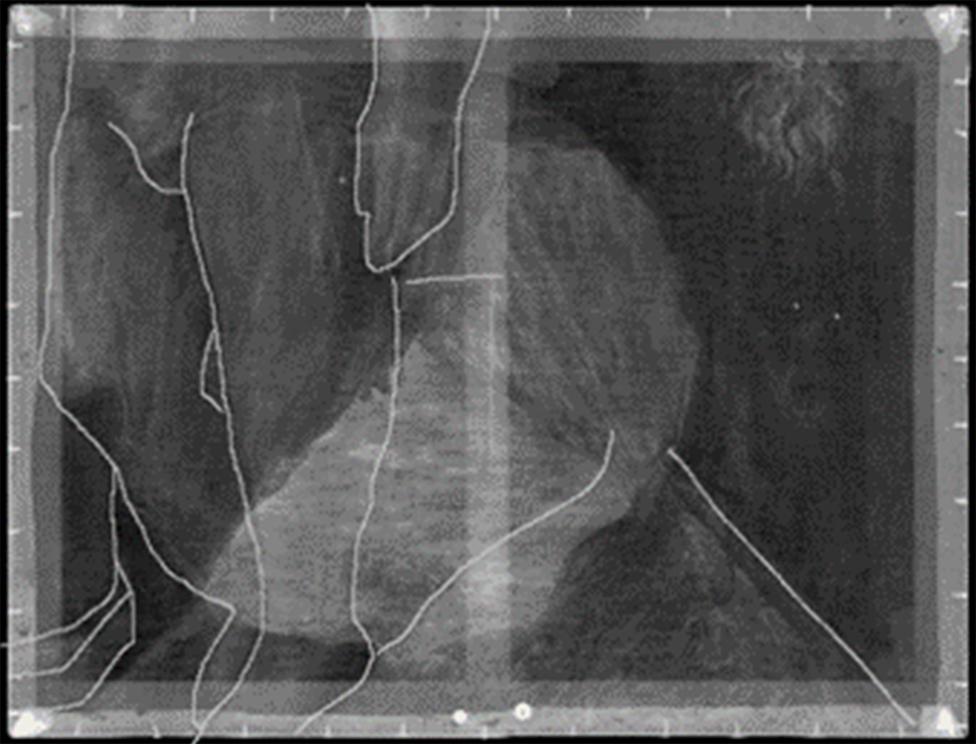
An X-ray analysis of La Pose Enchantée by Rene Magritte showed the underlying painted figures